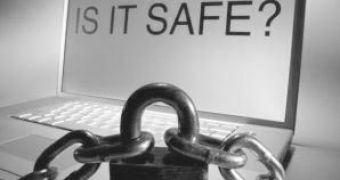Now, a lot of people think they're actually safe, but they clearly aren't. In this material, I will try to cover what being safe on the web actually means and also try to explain how some people only have a false impression of security. Now, if you've read my articles until now, then you've probably heard me yapping a thousand times about how important it is to have a firewall and an anti-virus. But that's not all there is to it - there are more things that you need to do in order to be more secure.
For instance - pay attention to what your firewall has to say. It will prompt you to allow some processes - some you should block and others you should add to the trusted zone. However, you should be very careful when pushing that allow button. Sure, some firewalls, like Kaspersky or Agnitum are very strict and even ask you if you're going to let the Yahoo! messenger connect to the server, but that doesn't mean that every time you get prompted you need to allow the process. For example, if you're working on your machine, say using Photoshop, and whatever you are doing has nothing to do with the web and suddenly you get prompted that 89.167.25.345 wants to connect to your computer, then you should block it. Thinking a bit instead of rushing into things always helps.
That was a little something about firewalls, but what about anti-viruses? Well, they will basically work great by themselves, without you having to interact with them too much, but they need to be up to date. If you have an AV and it's not updated, than you're vulnerable to the newer viruses. That's a fact!
Now, in case you were wondering why I decided to write about this, well, I recently read on PCWorld about a study showing that 78% of Consumer PCs in the US are not protected (defined as having up-to-date AV, spyware and a properly configured firewall). Well that's a huge number, if you ask me!

 14 DAY TRIAL //
14 DAY TRIAL //